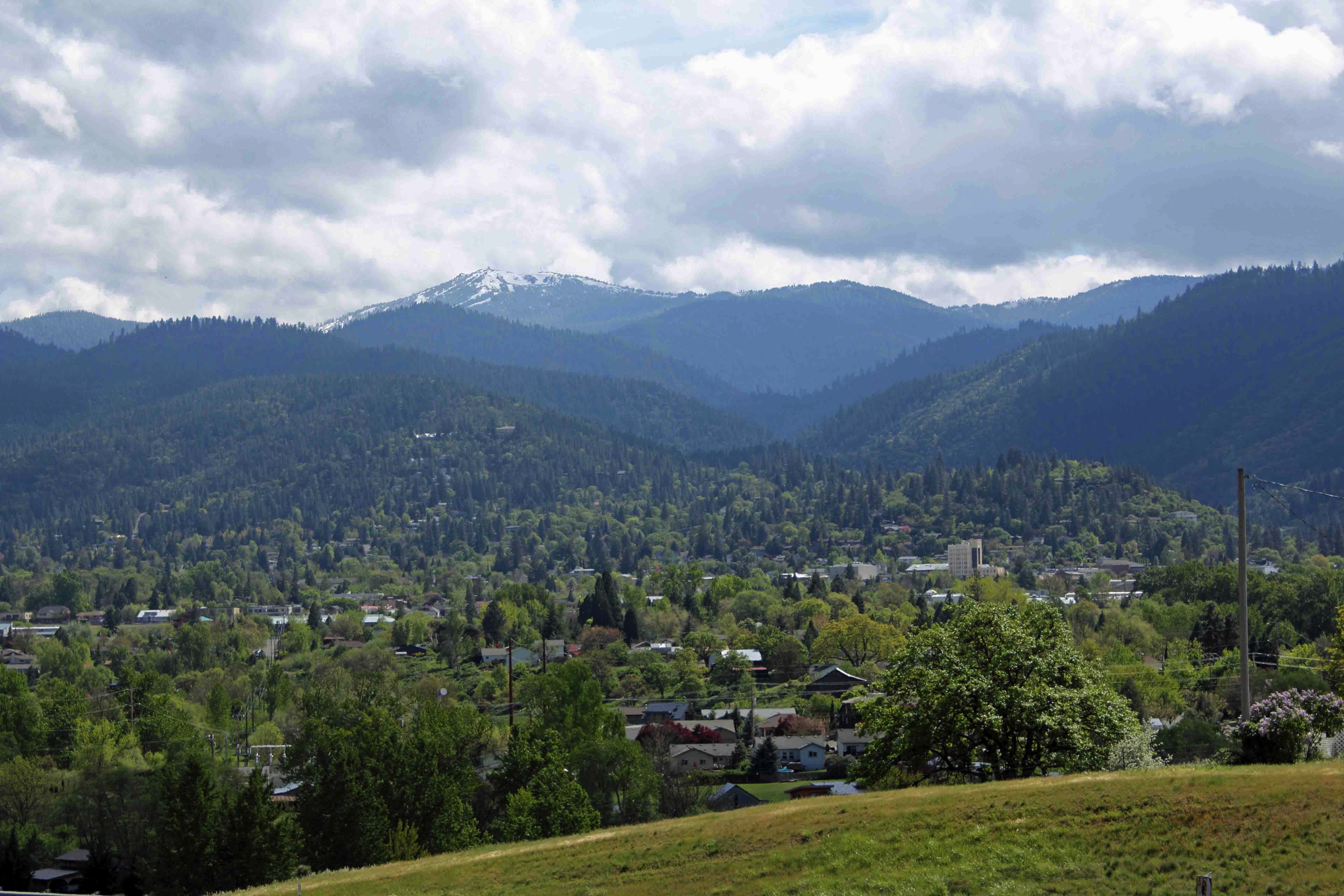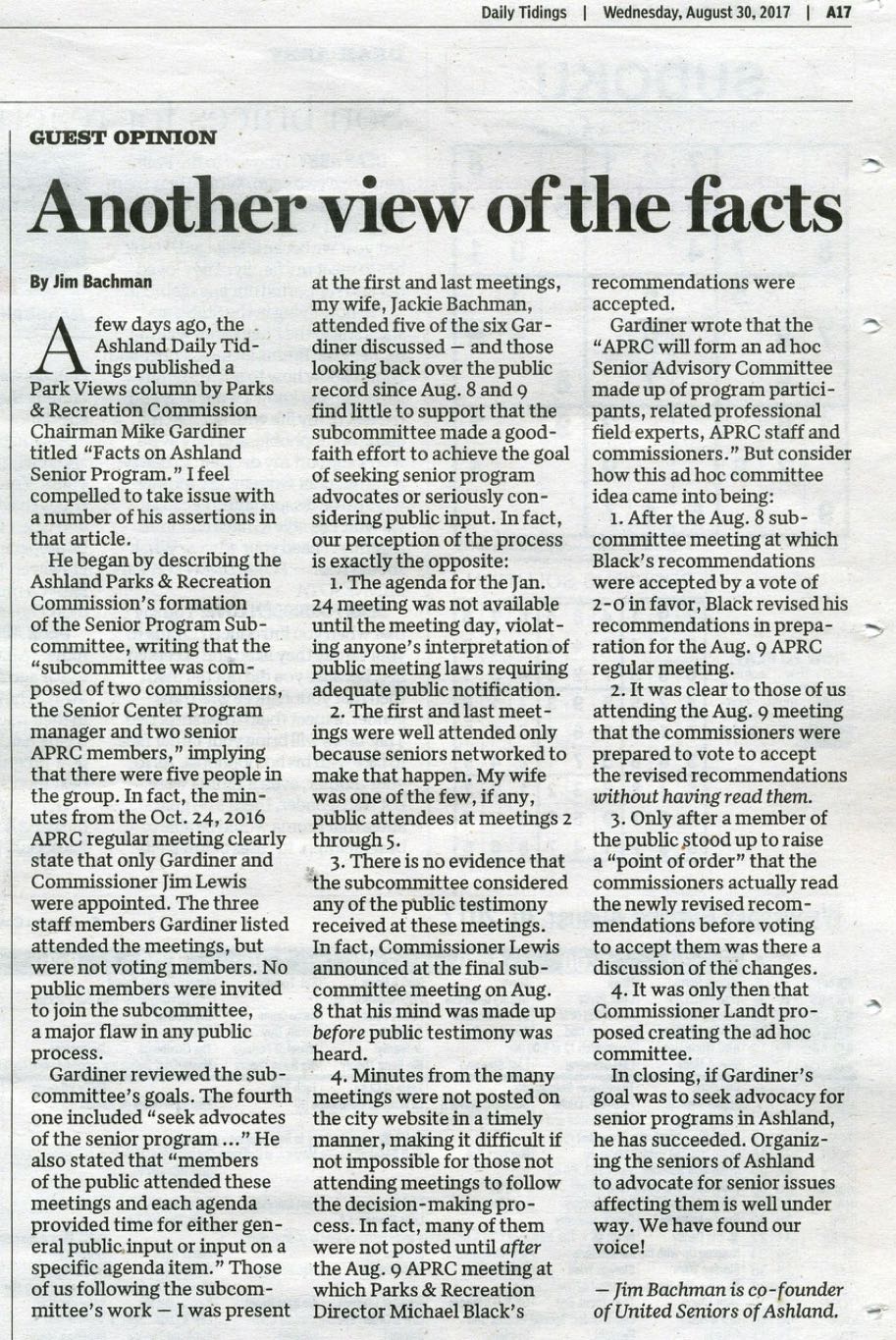


SITENAME
READ MORE
LOREM IPSUM DOLOR
CONSEQUAT VENIAM NOSTRUD

ASHLAND RECALL
Parks and Recreation Commissioners
Mike Gardiner
Jim Lewis
Rick Landt
RECALL
Broke Oregon Public Meeting Laws
The #3 Reason for the Recall of Ashland Parks Commissioners
APRC repeatedly and flagrantly failed to follow Oregon Public Meetings Law by under-publicizing meetings, disallowing or ignoring public input, and failing to accurately reflect citizen input in meeting minutes.
THE SPIRIT OF OREGON’S PUBLIC RECORDS LAW
The state of Oregon has a policy of openness. The most important advocate for open government is the public itself. The news media often acts on the public’s behalf in seeking public records to inform citizens about the work done in their name. Individual citizens also perform this watchdog function using the public records law to inform themselves about how well the government is functioning.
“under-publicizing meetings and disallowing or ignoring public input”
The APRC Senior Program Subcommittee established to review the senior center repeatedly failed to meet this basic rule. The first meeting in January, 2017 had no notification at all. The City Recorder had to intervene to inform the commissioners and staff that they were not in compliance of Oregon Public Meetings Laws:
192.640 (1) The governing body of a public body shall provide for and give public notice, reasonably calculated to give actual notice to interested persons including news media which have requested notice, of the time and place for holding regular meetings. The notice shall also include a list of the principal subjects anticipated to be considered at the meeting, but this requirement shall not limit the ability of a governing body to consider additional subjects.
The senior citizens who were many times the subject of the discussion of this subcommittee were not notified of meetings. Many don’t use the internet nor can they afford the Tidings. No notice was posted at the center nor announced at their various activities. The staff in charge of these meetings were responsible for notification not the staff of the senior center.
The special meetings called by the commission and staff on August 8 and August 9 had no copy of recommendations for the senior center until the meeting occurred. The public had no way to know what was happening let alone staff. The spirit of the law was not followed as indicated below.
Public notice must be reasonably calculated to give actual notice to interested persons and media who have asked in writing to be notified of meetings and general notice to the public at large.
Governing bodies wishing to provide adequate notice should strive to provide as much notice as possible to ensure that those wishing to attend have ample opportunity — a week to 10 days for example.
“failing to accurately reflect citizen input in meeting minutes.”
When citizens spoke at APRC public meetings, most submitted a written document. That document was not entered into the public record until citizens asked for their words to be in the public record. Without watchdog citizens, their words would not have been in the public record. What was recorded without their document was far from what they spoke which was read from their document. Moreover, the APRC Senior Program subcommittee reviewing the senior center had no approved minutes of five meetings. Those meetings began January, 2017; minutes weren’t made public or approved until June, 2017. This was hardly a timely submission of minutes. How is the public supposed to know what is happening?
192.650 Recording or written minutes required; content; fees. (1) The governing body of a public body shall provide for the sound, video or digital recording or the taking of written minutes of all its meetings. Neither a full transcript nor a full recording of the meeting is required, except as otherwise provided by law, but the written minutes or recording must give a true reflection of the matters discussed at the meeting and the views of the participants. All minutes or recordings shall be available to the public within a reasonable time after the meeting
THE SPIRIT OF OREGON’S PUBLIC RECORDS LAW: MINUTES
Written, sound, video or digital recording of minutes are required for all meetings.
The meetings law says minutes must be made available within a “reasonable time” after each meeting, but does not specify the time. Generally, this time frame should not exceed three weeks. Minutes must be preserved for a “reasonable time.” This is generally interpreted to be at least one year. Minutes of many governing bodies are subject to records retention rules and schedules established by the State Archivist.
Minutes are not required to be a verbatim transcript and the meeting does not have to be tape recorded unless so specified by law. Minutes are public record and may not be withheld from the public merely because they will not be approved until the next meeting.
Below is a citizen reporting on the mishandling of public records law, Commissioner mis-statements, and transparency by the Parks and Recreation Commission
